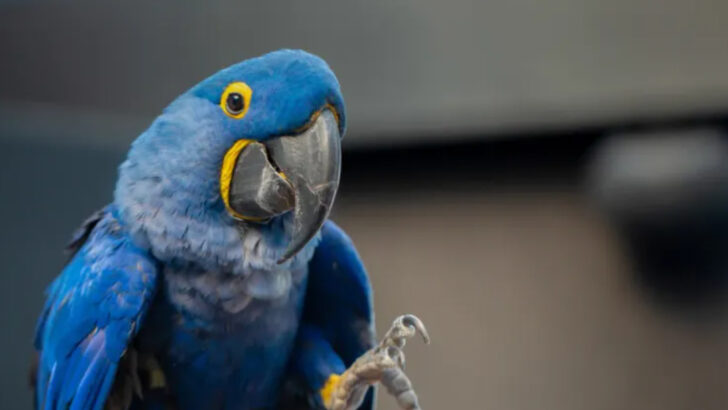Not all birds are meant to live behind bars—no matter how shiny the cage or how many toys you hang inside.
Some birds crave freedom like oxygen. They need space, sky, and a whole lot more than a few square feet to feel alive. Keep them caged too long, and they’ll let you know—with screams, stress, or silence.
Others? Total homebodies. They’re perfectly content chilling in their cozy enclosures, munching on snacks, chatting with their humans, and enjoying the easy life.
If you’re thinking of bringing a feathered friend into your world, this guide is your reality check. We’re breaking down 8 birds that struggle hard with cage life—and 8 that settle in like pros. Your future bird’s happiness might just depend on what you learn next.
African Grey Parrot
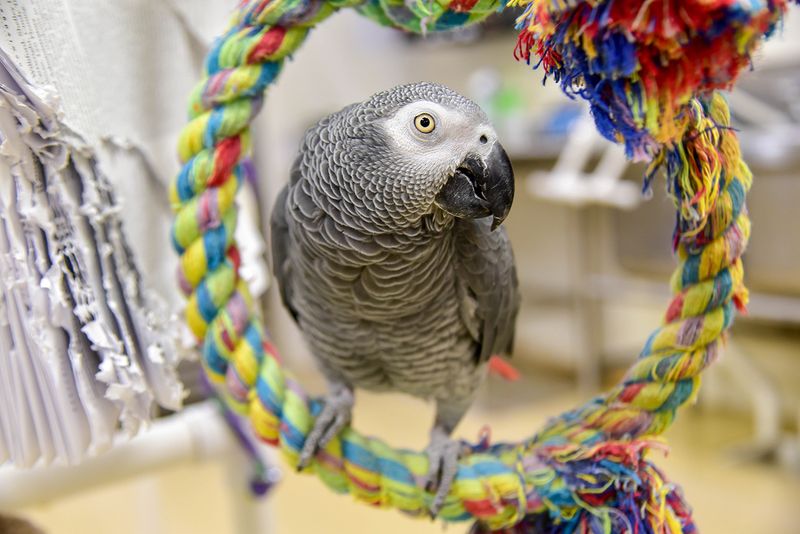
The African Grey Parrot, with its striking intelligence and emotional depth, often finds cage life challenging. Known for their ability to mimic human speech, these birds form deep bonds with their owners, craving interaction and mental stimulation.
Without enough attention, they may become withdrawn and exhibit signs of stress. Despite their popularity as pets, African Greys need plenty of room to explore and play, along with regular social interaction.
Providing toys, puzzles, and time outside the cage can help satisfy their inquisitive nature. Patience and understanding are key to keeping this sensitive parrot content.
Cockatiel
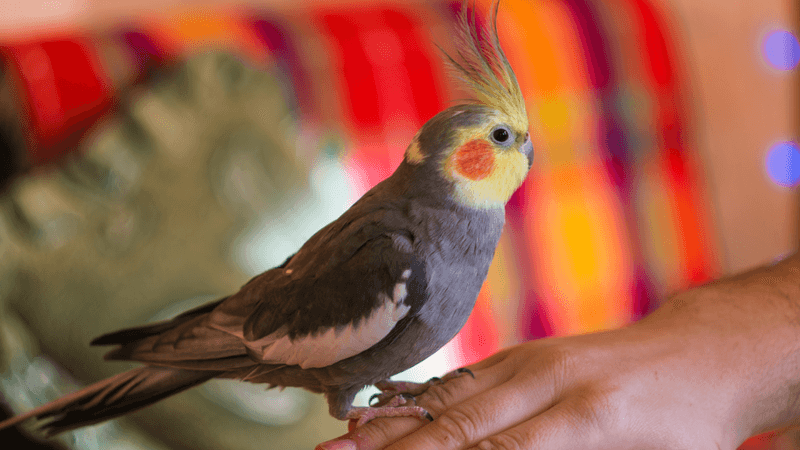
Cockatiels are social butterflies that adapt well to cage life, thriving in environments where they receive ample attention and interaction. Their friendly nature makes them a favorite among bird enthusiasts.
These charming birds enjoy whistling tunes and can be trained to perform simple tricks, adding to their appeal.
Providing a variety of toys and time outside the cage keeps them entertained and happy. Their ability to bond with humans makes them ideal companions for those looking for a lively and engaging pet.
Macaw
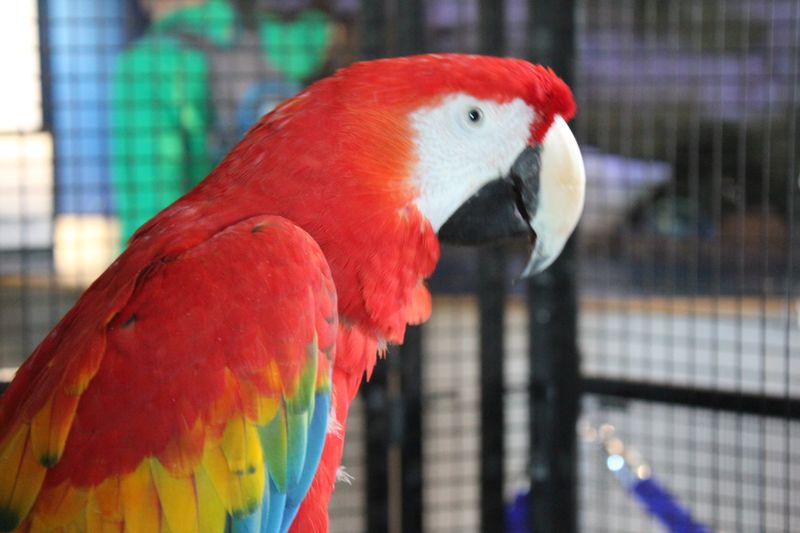
Macaws, with their vibrant feathers and charismatic personalities, often struggle with confinement. These large parrots thrive in environments that offer space to fly and explore.
Their need for mental and physical stimulation requires dedicated owners who can provide ample interaction and enrichment.
Macaws form strong bonds with their human companions and can become quite vocal if neglected. A spacious aviary with plenty of toys and climbing structures can help keep these energetic birds content.
Budgerigar (Budgie)
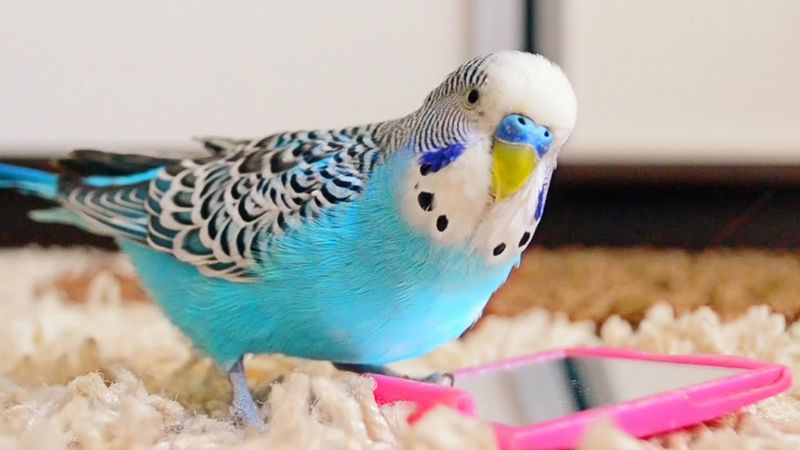
Budgerigars, or Budgies, are small parakeets that easily adapt to cage life, making them a popular choice for novice bird owners. Their playful nature and cheerful chirps bring joy to many households.
Budgies thrive in environments with a variety of toys and opportunities for interaction. They are social creatures, often befriending other birds or forming close bonds with their human caretakers.
With a balanced diet and regular exercise, Budgies can live long and healthy lives, bringing color and song into their owners’ lives.
Eclectus Parrot
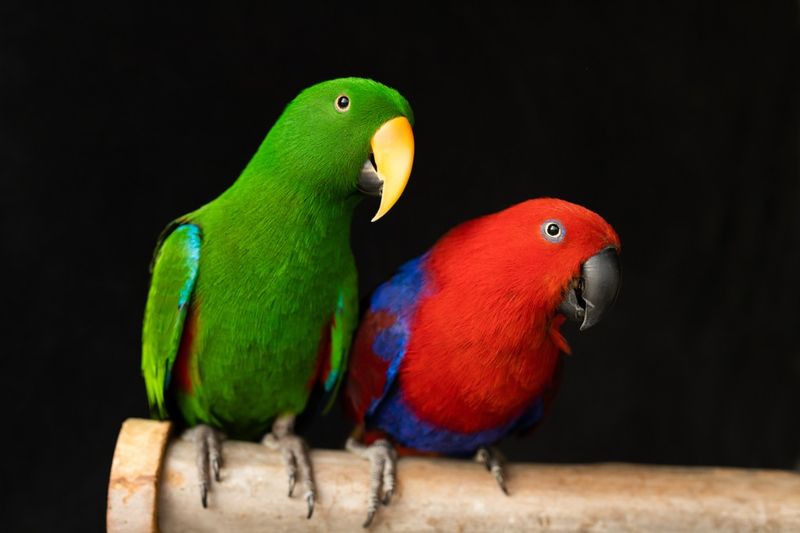
Eclectus Parrots, known for their stunning plumage and gentle demeanor, can struggle with cage life if not given adequate attention. These parrots require a calm and stable environment to thrive.
They are sensitive to changes and may become stressed if handled roughly or ignored. Providing mental stimulation through interactive toys and puzzles is essential.
Daily interaction and affection help them feel secure and content. Eclectus Parrots are perfect for those who can offer a peaceful and loving home environment.
Canary
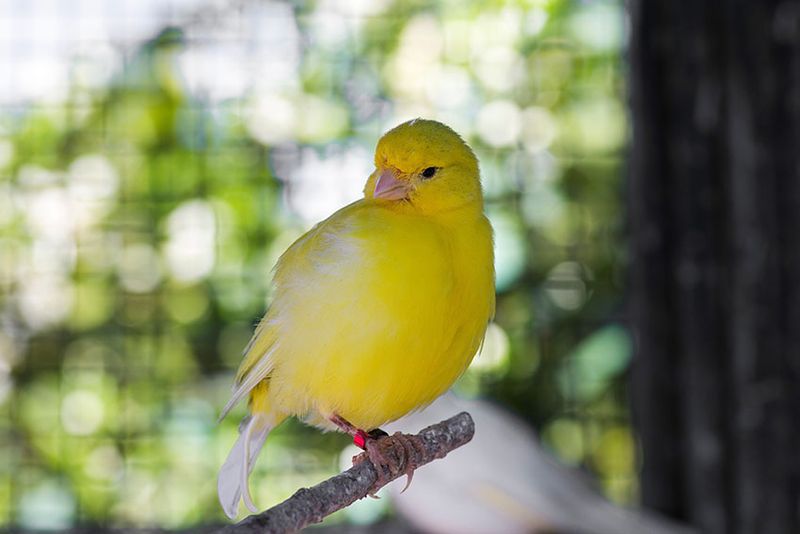
Canaries, with their melodious songs and vibrant colors, are well-suited to cage life. These small songbirds are prized for their ability to fill a home with cheerful tunes.
Canaries require minimal interaction compared to other birds, making them ideal for busy individuals. Providing a cage with space to fly and perch, along with a balanced diet, keeps them healthy.
Regular exposure to natural light enhances their singing ability, making them a delightful addition to any household. Canaries thrive in environments where they can observe their surroundings.
Lovebird
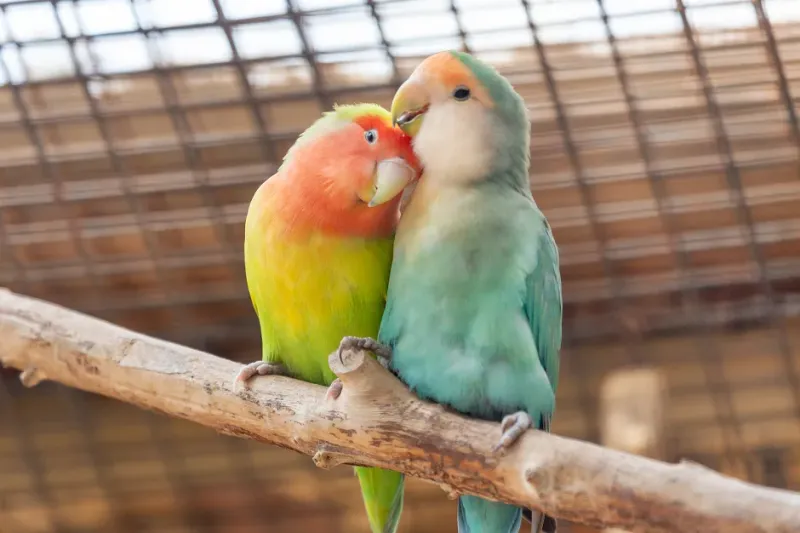
Lovebirds are known for their affectionate nature, often forming deep bonds with their mates. Though they adapt well to cage life, these birds require companionship to thrive.
Keeping Lovebirds in pairs ensures they receive the social interaction they need. Without a mate, they may become lonely and stressed.
Offering a variety of toys and opportunities for play keeps them entertained. Lovebirds bring joy and affection to those who can provide a loving and interactive environment.
Sun Conure
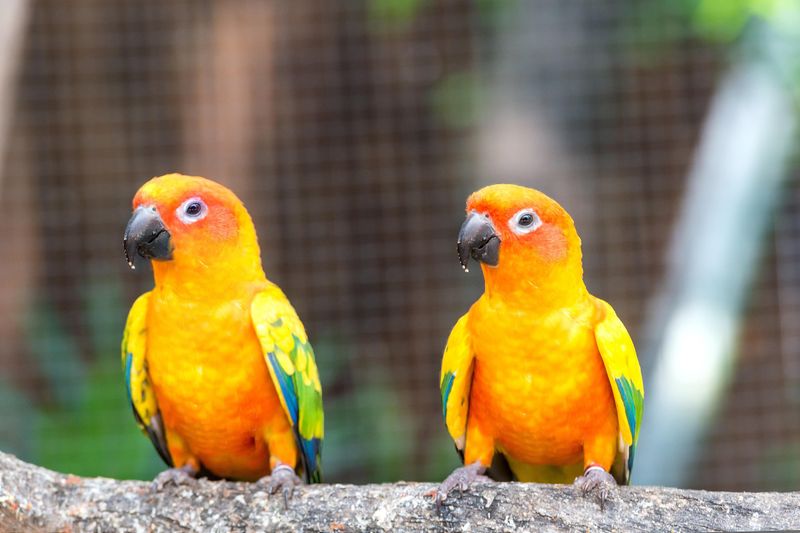
Sun Conures, with their vibrant colors and lively personalities, require ample space and interaction to thrive. Known for their playful nature, these parrots can struggle in confined spaces.
They need plenty of toys and activities to keep them engaged and happy. A spacious cage and regular time outside to explore are essential for their well-being.
Sun Conures are social birds, often forming strong bonds with their human caretakers. Providing a stimulating and warm environment helps them flourish, making them a delightful companion for those who can meet their needs.
Amazon Parrot
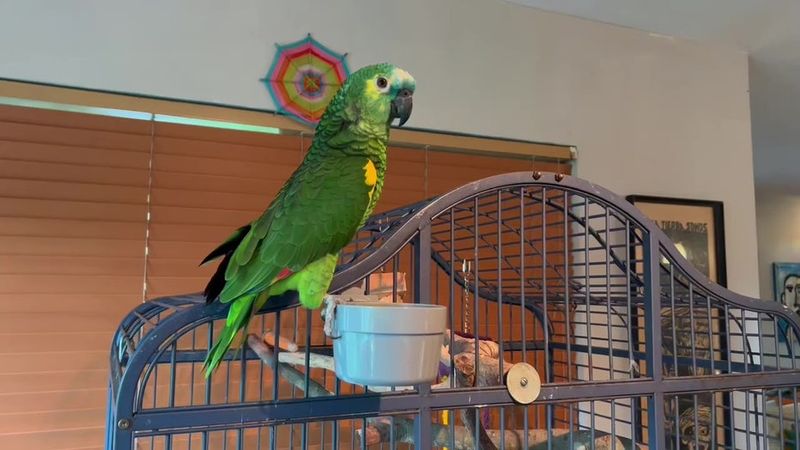
Amazon Parrots, with their charming personalities and vocal abilities, often thrive in environments where they can interact regularly. These parrots enjoy socializing and require mental stimulation to prevent boredom.
A spacious aviary with a variety of toys and climbing structures keeps them entertained. Regular interaction with their human companions strengthens the bond and ensures their happiness.
Amazon Parrots are great for those who can provide a lively and engaging environment, offering endless joy and companionship.
Finch
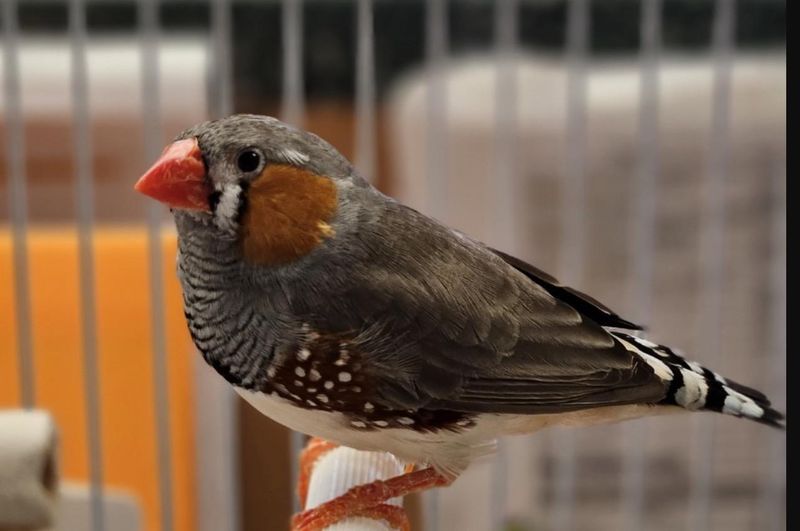
Finches are small, active birds that flourish in environments with plenty of space to fly and explore. Though they adapt well to cage life, providing a large aviary with natural elements enhances their well-being.
These birds thrive in small flocks, enjoying the company of their kind. A variety of perches, plants, and fresh food keep Finches happy and healthy.
Their cheerful chirping adds life to any home, making them a popular choice for bird lovers seeking a low-maintenance yet lively companion.
Quaker Parrot
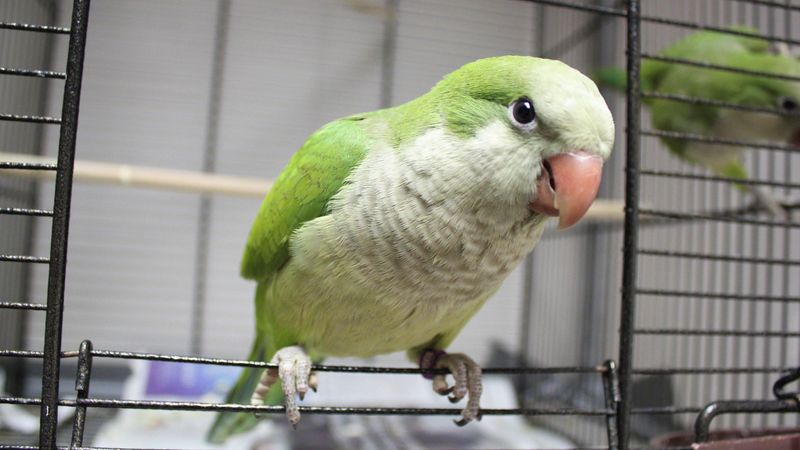
Quaker Parrots, also known as Monk Parakeets, are lively and intelligent birds that can adapt well to cage life when provided with proper care. These parrots are known for their ability to mimic speech and their playful antics.
Providing a variety of toys and frequent interaction keeps them entertained and content.
Quakers can become attached to their human companions, forming strong bonds. They thrive in environments where they receive plenty of attention and enrichment, making them delightful companions for those who can offer an engaging and interactive lifestyle.
Cockatoo
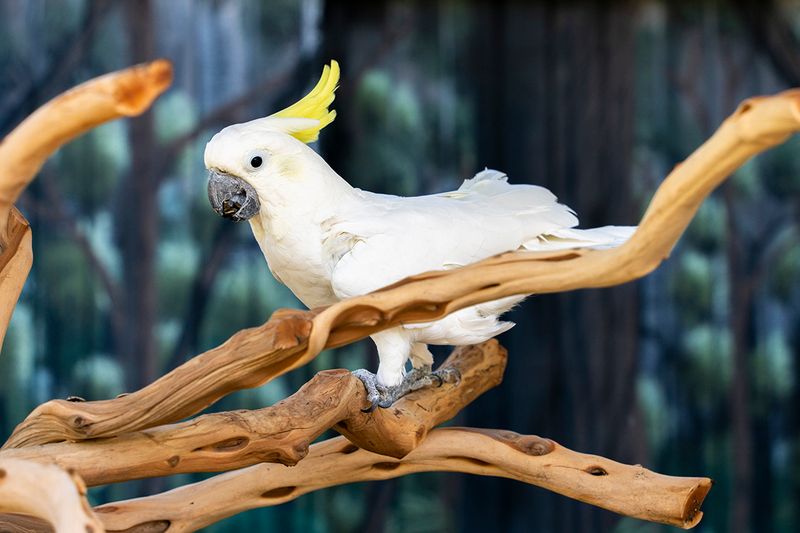
Cockatoos, known for their affectionate nature and striking appearance, can find cage life challenging. These birds thrive on social interaction and require plenty of attention from their caretakers.
Without adequate mental stimulation and interaction, Cockatoos may develop behavioral issues. They need space to explore and play, along with a variety of toys.
A loving and engaging environment helps them feel secure and happy. Cockatoos are perfect for those who can dedicate time to nurturing their playful and endearing personalities.
Parrotlet
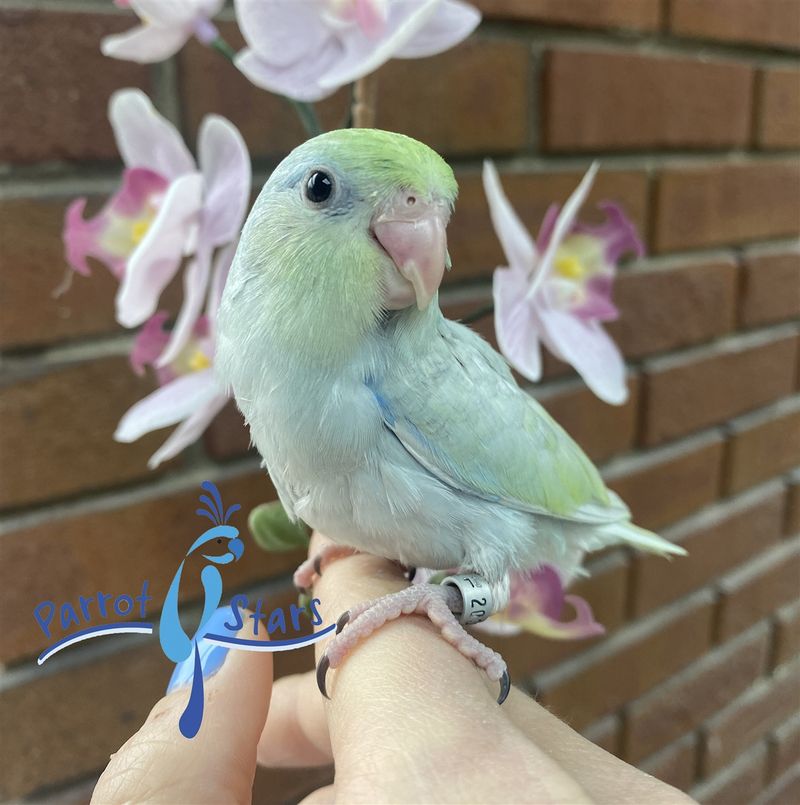
Parrotlets, though small in size, possess a bold and curious nature that adapts well to cage life. These tiny parrots are known for their lively personalities and ability to learn tricks.
Providing a variety of toys and regular interaction keeps them entertained and stimulated. Parrotlets thrive on attention and enjoy forming close bonds with their human companions.
Their compact size and charming demeanor make them a popular choice for those seeking a spirited and interactive pet. Offering a loving and playful environment ensures their happiness and well-being.
Hyacinth Macaw
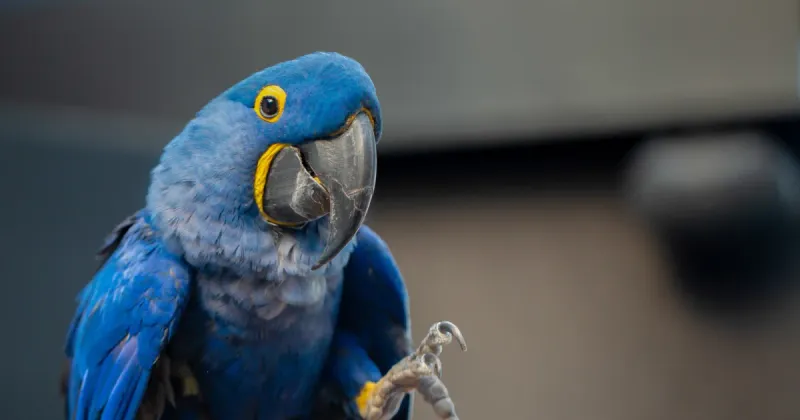
Hyacinth Macaws, the largest of the parrot family, often find cage life challenging due to their size and need for space. These magnificent birds thrive in environments that offer ample room to fly and explore.
Their strong beaks require sturdy toys for mental stimulation, and they need frequent interaction to prevent boredom.
Providing a spacious aviary with plenty of climbing structures helps keep them content. Hyacinth Macaws are ideal for those who can offer a large and enriching environment, catering to their needs for space and social interaction.
Rosella Parrot
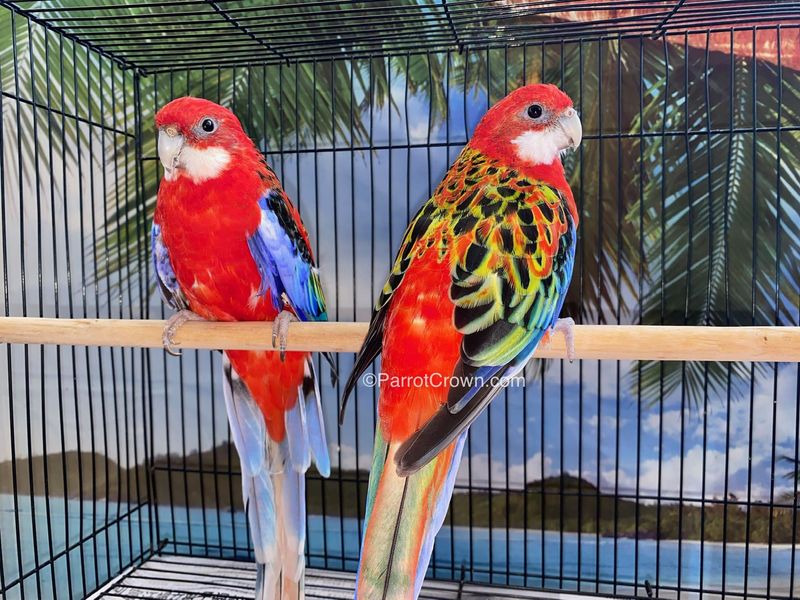
The Rosella Parrot, with its kaleidoscope of colors, is a visual delight. Native to Australia, these birds possess a spirited nature that thrives on space and freedom. Confined environments can lead to stress and behavioral issues.
Their need for interaction and mental stimulation is immense, often requiring more than a typical cage can offer. Providing a large aviary and regular out-of-cage time is crucial for keeping them happy.
Despite their beauty, Rosellas are not the best choice for novice bird owners. Their care demands an experienced hand and a deep understanding of their complex needs.
Pionus Parrot
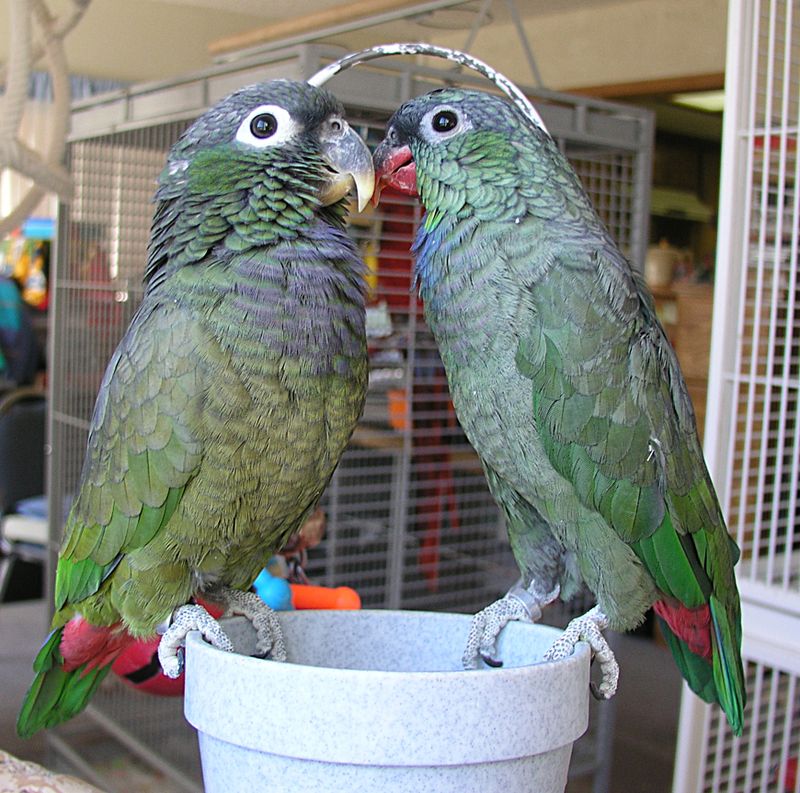
Pionus Parrots are known for their gentle and quiet nature, adapting well to cage life when provided with a nurturing environment. These parrots enjoy a calm setting with plenty of toys and opportunities for interaction.
Their mild-mannered disposition makes them suitable for families and individuals seeking a serene companion.
Providing a spacious cage and regular socialization helps keep them content and healthy. Pionus Parrots are perfect for those who appreciate a tranquil and affectionate bird, offering companionship without the need for constant attention.

